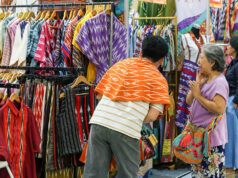DoF looking for alternatives to German climate-change study loan
THE government is seeking alternative funding for a $36-million loan it was hoping to obtain from Germany that had to be foregone after Malacañang ordered the cancellation of aid talks with countries that voted for a United Nations human rights investigation of the Philippines.
The Department of Finance added that $190 million worth of ongoing loans were not affected by the order, which covered only aid programs where negotiations were ongoing.
Finance Secretary Carlos G. Dominguez III said that the $36 million it was planning to borrow from Germany prior to the moratorium was meant to fund climate change studies.
Mr. Dominguez said certain multilateral institutions have ”signified their interest” to step in and provide loans to replace the 21 million euro program for the Metro Manila Bus Rapid Transit (BRT), which was intended to be funded by France, one of the countries voting for the UN investigation of the Philippines’ handling of the drug war.
“In any case, multilateral development financial institutions (MDFIs) and other bilateral partners have signified their willingness to finance the 21 million-euro project loan,” he was quoted as saying in the statement.
Undersecretary Mark Dennis Y.C. Joven who also heads the Finance Department’s International Finance Group (IFG), will be reviewing the affected projects and find alternate sources.
“We are currently in exploratory talks with our other bilateral partners on how they can assist the Philippine government in funding the grants that were previously under negotiation but were suspended on orders of the President,” Mr. Dominguez said.
He said other financing schemes affected are technical assistance grants, the loss of which will not “significantly affect” the infrastructure program. He also said the Department of Foreign Affairs (DFA) will be reviewing relations with countries that backed the UN resolution.
Last week, the President’s spokesman Salvador S. Panelo confirmed that the memo dated Aug. 27 exist after denying it earlier. The memo orders to reject loans and grants from countries who backed a UN investigation on President Rodrigo R. Duterte’s war on drugs.
However, Mr. Dominguez clarified that ongoing grants worth$197.03 million will not be affected by the suspension as the order only proposes to “suspend negotiations for and signing of, all loan and grant agreements with the governments of the countries that co-sponsored and/or voted in favor of the aforesaid resolution, pending the assessment of our relations with these countries.”
The ongoing grants from the pro-investigation countries include$172.4 million from Australia, $4.8 million from Italy, $1.11 million from Spain, $9.74 million from France and $8.98 million from Germany.
France, Germany and Sweden were non-members of the United Nations Human Rights Council (UNHRC) but were co-sponsors of the resolution.
The 18 countries that voted for the resolution are Australia, Argentina, Austria, Bahamas, Bulgaria, Croatia, Czech Republic, Denmark, Fiji, Iceland, Italy, Mexico, Peru, Slovakia, Spain, Ukraine, the UK and Uruguay.
On July 11, the UNHRC ordered its human rights office to prepare a comprehensive report on human rights violations in the Philippines connected to the drug war. — Beatrice M. Laforga



